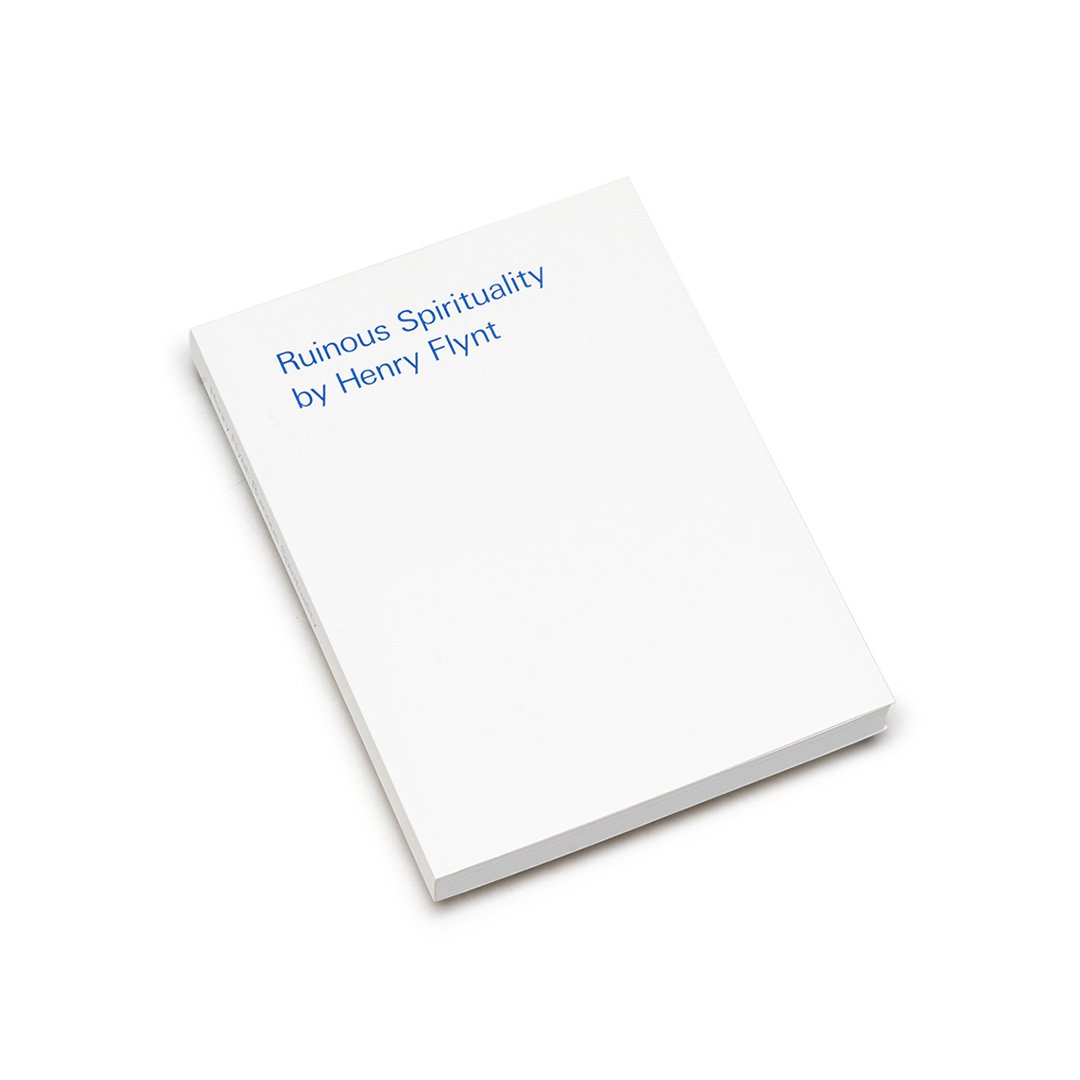
Henry Flynt - Ruinous Spirituality (Book)
Back in mid-2021, the publisher, João Simões, delivered the marvelous “Three Essays on Spirituality and Art” by Henry Flynt, offering swirling insights into one of experimental music’s most philosophically visionary minds. The first publication of writings by Flynt to have appeared in years, it left us wanting for more. Now, thankfully, just a short way down the road, João Simões has attended to that need, bringing out a stunning second volume, “Ruinous Spirituality”, that Flynt describes as a sequel to the previous book. Building upon and farthing the inquires pursued in “Three Essays”, it pursues the effects and presence of the negative aspects of spirituality on society and its inhabitants. Issued in a beautiful 275-page edition of 500 copies, “Ruinous Spirituality” is yet another essential philosophical offering from the radical mind of Henry Flynt.
The narrative of Flynt’s creative life began unexpectedly in the mathematics departments at Harvard. It was there that he met Tony Conrad during the late 1950’s, and where the two like minds would embark upon a life in art and music that would change everything in their wake, eventually moving to NY, joining forces with George Maciunas, La Monte Young and Jack Smith.
He is also responsible for Concept Art, initially drafted in 1961, and published within “An Anthology of Chance Operations” (published by Jackson Mac Low and La Monte Young) in 1963. For Flynt, the acts of creativity have never been purely intuitive, but rather the consequence of complex and interweaving ideas that grow from writing and text as much as action. Like “Three Essays on Spirituality and Art” before it, in addition to earlier volumes like “Blueprint for a Higher Civilization”, “Ruinous Spirituality” delves deep into this incongruous world.
While primarily attending to ideas on affirmative spirituality, within “Three Essays on Spirituality and Art” Flynt stated that “ruinous spirituality needs to be studied as carefully as admirable spirituality: it discloses personness as much as admirable spirituality does”. It is precisely this that he pursues at length across the pages of “Ruinous Spirituality”, effectively the second side of the coin. Pertinently, this latest book is not a study of supernatural sources of evil, myths about impiety, or religion at large. Flynt is interested in something much more human and connected to direct behaviors and feelings: how ruinous spirituality is assembled in individual interiority. To Flynt, this is connected to five cases of spiritually ruinous interiority, “The SUFFERER, the PERFORMER, the WRECKER, the SEDUCER, the PARTICIPANT. The SUFFERER is a victim of themself. Three cases are agents acting on targets: their success is the ruin of the target. The PARTICIPANT is a SEDUCER who also participates in the revels”.
Heady, wild, and wonderful as Flynt always is, this essential text is a whirlwind of layered and complex ideas, further illuminating the radical contemporary thinking of one of the most important figures in experimental music that remains as invested in smashing institutionalized thinking as he was more than half a century ago. Published by João Simões as a beautiful 275-page edition of 500 copies, “Ruinous Spirituality” is a must for any fan of Flynt, philosophy, and the more unexpected extension of conceptual practice.
“Ruinous Spirituality can be seen as the sequel to my recent Three Essays on Spirituality and Art. The abstract for Three Essays on Spirituality and Art said that ruinous spirituality needs to be studied as carefully as admirable spirituality: it discloses personness as much as admirable spirituality does. Ruinous Spirituality is a lengthy and aggressive contribution to this study.
It goes without saying that myths about supernatural sources of evil, and myths about impiety, are rejected. Indeed, they are ignored: except when they comprise part of the object of study. There have been self-avowed Satanist enterprises for centuries. (And Satanic has a vivid metaphorical use in English. As shorthand for eerily malicious.) As for religion, it has to be appraised as a ruinously spiritual institution (more carefully, as an amalgam).” —Henry Flynt, NYC, Feb. 2022
Published by João Simões, Lisboa
Typeset by Ana Baliza in Linotype Univers
500 copies, softcover, 275 pp.
Printed and bound in Portugal



